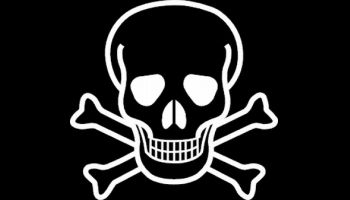

A report released this week by the Business Software Alliance and IDC claims the UK could be missing out on £5.4 billion in new economic activity by 2013 due to software piracy, but many industry commentators have dismissed the findings as mere “propaganda”.
According to the “Economic Benefits of Reducing Software Piracy” study, reducing software theft in the UK by 10 percent over four years would create 13,011 high-tech jobs, £5.4 billion in new economic activity and £1.5 billion in new taxes by 2013 – with 87 percent of those benefits expected to remain in the local economy.
The same reduction on a global scale could create $142 billion in new economic activity while adding nearly 500,000 new high-tech jobs and generating roughly $32 billion in new tax revenues, the report claims – while “front-loading the gain” (reducing piracy by 10 percent in the first two years) would compound the economic benefits, producing $193 billion in new economic activity by 2013 and generating $43 billion in new tax revenues.
“Because selling, servicing and supporting software creates demand for related distribution and services, the impact of software piracy reaches beyond software publishers, starving local distributors and service providers of spending that creates jobs and generates more tax revenues, boosting the local economy,” said Michala Wardell, chair of the BSA UK Committee. “This study shows that the entire economy can benefit from lowering software piracy in the UK as aggressively and as quickly as possible.”
“It’s disappointing, when we are keen to have a serious and informed debate on piracy, that the BSA are still trotting out this sort of transparent propaganda,” said Andrew Robinson, leader of the UK Pirate Party, speaking to eWEEK Europe. “I have one simple question for the BSA: Where is this mythical $193 billion going to come from?”
“The report assumes it will magically appear out of thin air and that giving it to BSA members won’t affect the balance sheets of companies who are going to pay it,” Robinson explained. “The mythical $43 billion in extra tax revenue not only assumes that companies buying software have $193 billion to spare, but it also assumes they would normally throw it away rather than spend it on something else that gets taxed.”
While there are undoubtedly some losses associated with software counterfeiting, the GAO report in April stated that any overarching conclusions of piracy’s impact on the broader economy may not be possible as a result of such studies – and went as far as to say that there are some potential positive economic effects of counterfeiting and piracy.
“Some consumers may knowingly purchase a counterfeit or pirated product because it is less expensive than the genuine good or because the genuine good is unavailable, and they may experience positive effects from such purchases,” it stated. “Consumers may use pirated goods to ‘sample’ music, movies, software, or electronic games before purchasing legitimate copies, which may lead to increased sales of legitimate goods.”
Research by Microsoft earlier this year found that one in three British adults considers using pirated software to be “acceptable”. In a survey of 1,000, one in eight admitted to using pirated software at work, and more than half believed their employer would consider the practice acceptable.
Meanwhile, controversy is still raging over ACTA – the proposed treaty for establishing international standards on intellectual property rights enforcement. The scope of the agreement is broad, including counterfeit goods, generic medicines and “piracy over the Internet”.
The ACTA Criminal Provisions chapter states that, for crimes of copyright infringement, “each party shall provide effective proportionate and dissuasive penalties”. These could include “imprisonment” and “monetary fines [sufficiently high to provide a deterrent to future acts of infringement, with a view to removing the monetary incentive of the infringer]”.
Countries will be given the option to join up to the agreement on a voluntary basis, and those that do will be able to refer cases of copyright infringement to an independent governing body.
However, advocacy groups such as La Quadrature du Net and the Free Software Foundation have spoken out against ACTA, describing it as “emblematic of an outdated repression of the sharing of information and knowledge”.
American space agency prepares for testing of Boeing's Starliner, to ensure it has two space…
As UK and Europe develop closer military ties, European Commission says it will invest €1.3…
Zuckerberg seeks to revive Facebook's original spirit, as Meta launches Facebook Friends tab, so users…
Notable development for Meta, after appeal against 2021 WhatsApp privacy fine is backed by advisor…
First sign of shake-up under new CEO Lip-Bu Tan? Three Intel board members confirm they…
Trump's nominee for SEC Chairman, Paul Atkins, has pledged a “rational, coherent, and principled approach”…